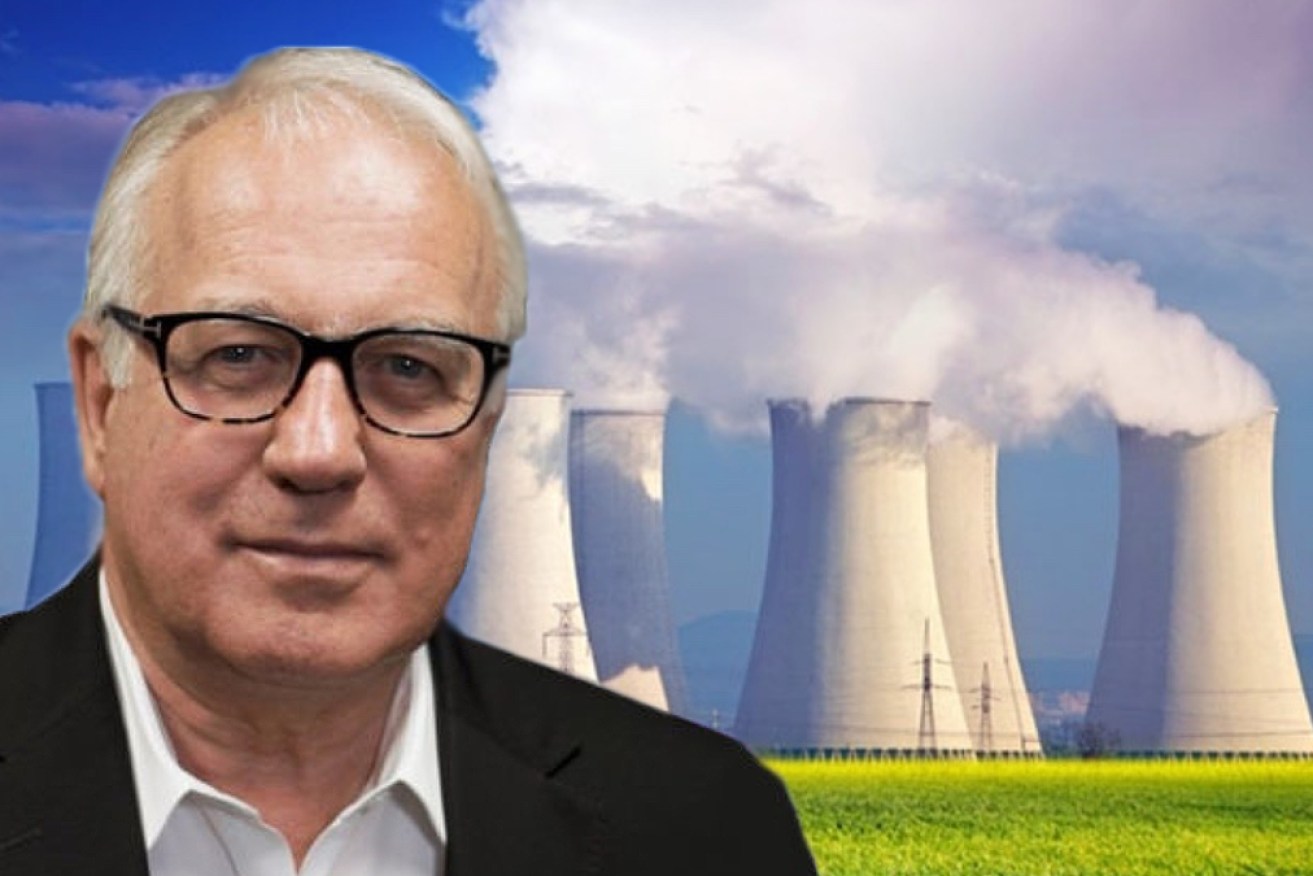Alan Kohler: Australia’s ban on nuclear power is ridiculous. It should be dropped


Nuclear power might be a small but useful addition to Australia’s electricity generation, but only with government money behind it. Photo: Getty/TND
There’s no danger of a nuclear power plant being built in Australia, but it’s banned anyway.
It’s an absurd, politically timid ban. There’s nothing particularly wrong with nuclear energy, plenty of countries do it, and Australia happily sells uranium to them. Also, it has no carbon emissions, which is good.
It’s just that new reactors are uneconomic. Or maybe they’ll be viable one day, who knows? But that should be a business decision, not a political one.
But apart from the fact that it makes no sense, the main reason for Labor to remove the ban, you would think, is that advocating nuclear generation is the Coalition’s only energy policy; without being against the ban, which the Coalition itself imposed, it would have no policy at all and would have to think of something sensible.
The ban was introduced by the Howard government in 1998 as part of a deal with the Greens to get a nuclear research reactor built at Lucas Heights near Sydney, which raises two questions:
- Why did Labor oppose that research reactor so John Howard had to talk to the Greens, who were prepared to do a deal?
- Why did Howard want that research so badly he was prepared to ban all nuclear power in Australia?
And here we are a quarter of a century later still pointlessly arguing about it. What’s more, the argument has a tinge of religion about it, with evangelists, unbelievers and agnostics.
In 2006, John Howard, stricken with buyer’s remorse, created a task force headed by Ziggy Switkowski to do a Review of Uranium Mining Processing and Nuclear Energy in Australia.
They produced a huge, masterful 287-page piece of work, which concluded thus: “Nuclear power today is a mature, safe, and clean means of generating baseload electricity. Nuclear power is an option that Australia would need to consider seriously among the range of practical options to meet its growing energy demand and to reduce its greenhouse gas signature.”
Switkowski noted that nuclear power had “no social licence at this time,” but the legislative ban against it should be reconsidered, as decisions in 2019 should not be based on legislation from 1998 reflecting views of 1979.
So Howard went to the 2007 election with a pro-nuclear power policy while the Labor Party abandoned its silly policy of having no more than three uranium mines, but remained against nuclear power in Australia.
As John Howard said at the time: “You have this ridiculous situation where they have hailed themselves as apostles of the 21st century by ending their three-mines policy on uranium … yet in the same breath they’re saying ‘but of course, we can’t convert the uranium for nuclear power in Australia although we can sell it to countries overseas and they can use it for civilian nuclear purposes’.”
Labor leader Kevin Rudd responded: “Mr Howard’s plan by contrast is to forget coal, forget clean coal, turn your back on the coal industry and instead let’s build 25 nuclear reactors in a suburb near you”. And the less said about that the better.
Nevertheless, by 2011 momentum was starting to build for an end to the ban on nuclear … until in March that year the Daiichi nuclear power plant in Fukushima melted down following the Tohoku earthquake and tsunami. That was the end of any discussion of nuclear power for a while.
And when it restarted as part of the global effort against climate change, the focus was on small modular reactors (SMRs) – about 300MW, the size of a shipping container – and still is.
And Opposition Leader Peter Dutton has seized upon SMRs like a drowning man clutching a raft. The idea of building tiny reactors that you wouldn’t even notice has given him an energy policy that looks different to Labor’s but doesn’t involve fossil fuels: “Australia could have SMRs installed within a decade,” he declared recently.
But it’s all a distraction from the real work of dealing with climate change and the transition to renewable energy, including the matter of whether we should have a carbon tax, as suggested by Ross Garnaut and Rod Sims.
For example, at the AFR’s Energy and Climate Summit last October, the shadow minister for climate change Ted O’Brien spent most of his speech advocating nuclear, and in particular small modular reactors.
Minister for Climate Change Chris Bowen then spent most of his speech denouncing Ted O’Brien’s speech, including this gem: “Lifting the ban on nuclear energy in Australia, (would send) mixed signals from government about the role of renewables and … would run the real risk of chilling investment in the firmed renewable energy we need …”
Really? Not banning something would so confuse investors they would refuse to invest in something else that is also not banned?
In November the US company developing the world’s most advanced commercial SMR project in Utah, NuScale Power, abandoned the project because of a 70 per cent blowout in costs. It simply doesn’t add up.
The only way new nuclear power adds up is if governments subsidise it to make up the last 10 to 20 per cent of generation when renewables reach 80 to 90 per cent, and we still want to be zero emissions, and there might be some need for that.
The Labor government’s policy calls for 82 per cent renewables, but the way rooftop solar is going, that is likely to be overshot, so maybe 90 per cent, which still leaves 10 per cent from somewhere else.
Geothermal, biomass or wave power are all possible, but a couple of small modular reactors might be worth having in the mix as well, because they can operate night and day.
But the point is this: It is a minor side issue. Nuclear might be a small but useful addition to Australia’s electricity generation, but only with some government money behind it. Would a government subsidise nuclear power? Maybe, but only if there was no alternative.
Yet this unimportant, unlikely prospect has become the main topic of debate because it’s something about which the main parties can appear to disagree, while agreeing on everything important.
And the best way to get rid of that distraction would be to remove the ban, so politicians can get on with talking about the real issues, and let the private sector get on with not building nuclear power plants.
Alan Kohler writes twice a week for The New Daily. He is finance presenter on the ABC News and also writes for Intelligent Investor








